Finca Vigia
To me, the best weather in the world is found when you go
toward the equator until it gets too hot, and then you go straight up until you
find cool breezes. I learned this years
ago when I passed a couple of weeks in Cuernavaca taking Spanish lessons. Cuernavaca calls itself the city of eternal
spring, and that's a pretty accurate description. Even though it's squarely in the Earth's
tropical zone, 6000 feet of elevation assures that Cuernavacans don't need air
conditioning.
I have a friend, Lilian, who sited her home halfway up a
mountain in the suburbs of San Jose, Costa Rica. Weather there stays close to perfect due to a
happy combination of latitude and elevation.
One night, while visiting there, we all decided to go to a restaurant
near the mountain top. I foolishly
neglected to take a sweater along, and shivered through dinner, proving on that
mountain you can be either too high or too low.
In 1939, Ernest Hemingway brought his third wife, Martha
Gelhorn, to live with him in Cuba. After
settling in, Martha began to look for a permanent home. She must have known
that in a hot place like Havana it would be a good idea to be as high up as you
can get because after a search, she set her sights on a large finca situated on
many acres on top of the highest hill on Havana's southern horizon. It was in a little town called San Francisco
de Paula, and Papa Hemingway agreed with Martha to make it their home.
Finca Vigia (literally, "farm with a view") is
home to hundreds of species of tropical trees and plants surrounding a
one-story, expansive home with huge rooms.
Soon after the purchase, new bookshelves in the house filled with books
and the notes of Papa, who read even more than he wrote. Papa's fourth wife, Mary, built him a four
story tower with a writing studio on the top floor. From that room you can see all of the
metropolitan area of Havana and beyond out into the Florida Straits. Papa felt the tower studio was too silent for
him to write well and resumed writing standing at his typewriter in the
house. Even on the ground floor, one
could see the Havana panorama laid out in the distance.
Many animal rights proponents would sneer at Hemingway, the
hunter. He hung heads of buffalo,
gazelles, and antelope he had killed on safari on the finca walls, sometimes
several in a room. Yet the finca
abounded with pet cats and dogs. Papa
would mourn the deaths of any of his dogs, and he was said to be even fonder of
his cats than his dogs. He established a
little cemetery for some of the dogs.
Descendants of his dogs and cats still live on the finca grounds, fed
and cared for by the attendants of the property, now a nationally protected
museum. Cuba has restored Finca Vigia to
the showplace it must have been when Papa lived there. No expense was spared in the restoration, and
every item was cataloged, removed, stored, and eventually put back in the same
place when it was necessary to construct a new roof for the house a few years
ago.
Papa, I loved your writing, hated your hunting, marveled at
your Cuban home, and snapped a photo of your little pet cemetery.
Les Inglis













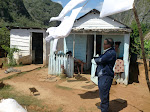




























































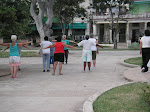
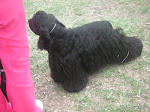
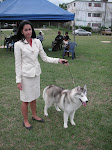


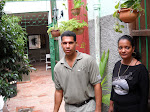


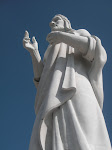

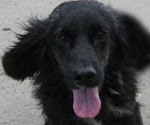
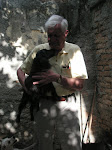
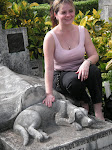


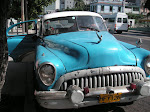

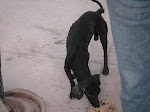



No comments:
Post a Comment